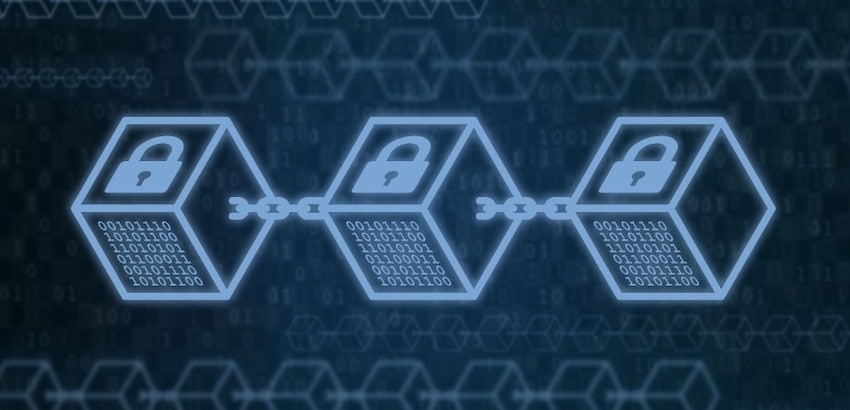
Blockchain technology can offer numerous benefits, we discussed several of these benefits in a recent article. As a recap, blockchain use in healthcare can:
- Provide a complete, single source of accurate medical patient records
- Allow for direct access to validated services by insurers
- Be confirmed directly by patients with no intermediary
- Save time and money
- Provide more advanced analytics
These are just some of the benefits. To achieve them, of course, companies must adopt the technology.
Current Blockchain Adoption Obstacles
An article published in 2023 lists the top blockchain challenges. They include a lack of adoption by other companies; a lack of people with the necessary skills to use the technology; and the lack of trust among users.
The Blockchain Council, meanwhile, lists the following challenges in 2020: scalability, interoperability, energy consumption, lack of talent, and lack of standardization.
At first glance, these may seem like large stumbling blocks to overcome. However, when looking at the benefits of blockchain technology and delving into how these issues are already being addressed demonstrates a more optimistic situation.
Solution When Adopting Blockchain Technology
The American Hospital Association is encouraging healthcare CEOs to lead technological advances, reminding them that “You don’t need to be on the leading edge or at the forefront of technical proficiency but you do need to build the knowledge to lead organizational change.”
This includes fostering an innovative, creative culture that facilitates technology-based momentum. Also, it’s crucial for healthcare executives to surround themselves with the right expertise.
This leads to the second issue listed above: lack of experts/talent. Fortunately, HealthTECH Resources has an extensive network of healthcare IT professions for healthcare organizations to tap into, allowing them to augment staff with professionals that can help explain the technology and answer questions. They can also address another key issue listed: moving away from legacy systems.
Experts in our healthcare IT company’s network (available as consultants, contract to hire professionals, and permanent hires) can work alongside your healthcare facilities’ IT departments to explore new technologies. They can examine your current systems and determine what needs to be done to update them—whether it’s with blockchain technologies or other leading-edge enhancements: for example, with telemedicine advancements, big data and analytics, artificial intelligence or machine/deep learning.
Professionals sourced from HealthTECH Resources will factor in your goals in the transition plan from a legacy system to one more fully powered with cutting-edge technologies.
Misconceptions About Blockchain Technology
This obstacle described by Forbes deserves its own section because there are plenty of misconceptions. One is that blockchain transactions can’t be verified. In fact, the distributed database is at the core of this technology, and its decentralization makes it “difficult to tamper with.” Cryptographic hashes provide encoded data that further protects the blockchain; to change info in a particular section (or “block”), someone would need to typically change every one that came after it—making it quite cumbersome and time intensive to even try.
Another misconception: blockchain technology has already advanced as far as it will. That’s far from true. Some people believe that blockchains are only useful in financial applications, but this technology lends itself to creating, storing, and sharing sensitive information regardless of industry.
When your healthcare organization has questions about what’s fact and what’s myth about blockchain technology, experts from our network can provide answers.
Solutions to More Obstacles
As far as scalability, numerous solutions are being devised and used, providing an intriguing challenge that many entrepreneurs are exploring and addressing. Without getting into too much detail, “The Merge” that recently occurred with Ethereum transformed this particular blockchain from proof of work (PoW) to proof of stake (PoS), widening significant possibilities for the goal of full scalability.
Blockchain interoperability is still in the development stages. It will allow different types of blockchains to communicate with one another, sharing data. Many experts believe that interoperability is the future of blockchain technology; more specifically, “Today, governments, corporations, institutional and individual investors are becoming more optimistic about the evolution of blockchain technology.”
Experts are also focused on reducing energy consumption of blockchains. Referring again to Ethereum’s Merge as our example, it’s hoped that the new setup will end up consuming 99.95% less energy than before. Some critics feel this is an overstatement, but the process to reduce energy consumption is occurring.
As far as the last obstacle named in the two articles, lack of standardization, a huge step forward in organizing data was just made. Goldman Sachs has unveiled a classification system that will categorize tokens used on blockchains by their usage. It will initially be available for institutions by subscription; its debut is being compared to the leaps forward achieved by the Dewey Decimal System in libraries and the advent of search engines on the internet. Goldman Sachs’ system won’t standardize data, but it will provide information about them that is much more structured.
Much is still up in the air about how blockchain technology will advance, how the obstacles will be addressed, and how it will end up revolutionizing healthcare IT—but the process is already in progress. To find out how it can benefit your healthcare organization, contact us to find experts from our healthcare IT consulting firm you need to help guide your technological journey.
Contact HealthTECH Resource for Healthcare IT Solutions
As blockchain technology becomes integrated with electronic health records and other technology systems, our healthcare IT consulting firm will continue to enhance our network. We’ll ensure that, when your healthcare organization needs to supplement its IT staff, we can fill them in, quickly and seamlessly. This includes but isn’t limited to professionals with blockchain technology expertise.
We are a boutique-style healthcare IT/EMR consulting agency with more than 20 years of experience, making us the smart choice to supplement your staff. If you’re ready to get started, our team is standing by to discuss the healthcare IT and EHR implementation solutions you need, please contact us online or call us at (602) 903-7961.

PRESIDENT/CEO AT HEALTHTECH RESOURCES
Larry has specialized in building strategic healthcare relationships for over 25 years, helping the nation’s top payors and providers solve some of their most pressing business challenges through an intelligent mix of staffing services, training, and consulting.
